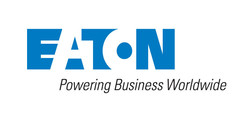Thursday, February 27, 2020
The Government Accountability Office Releases Report on Diversity and Inclusion in the Workforce
The Government Accountability Office this week released a report on diversity and inclusion at the State Department. The report did not have good news. From 2002 to 2018, the percentage of the workforce that identifies as part of a racial or ethnic minority group grew from 28% to just 32% of the workforce. In those years, however, African-Americans dropped from 17% to 15% of the workforce. The report found similarly troubling patterns regarding promotions, noting, “the proportion of racial or ethnic minorities and women was lowest at management and executive levels.” Upon the release of the report, City Club member and former U.S. Ambassador Gina Abercrombie Winstanley joined a panel of State Department stakeholders to discuss the report with United States Senator Bob Menendez (D-NJ). These are her prepared remarks. You can see her deliver them in the video. Her remarks start just before the 30 minute mark.
-- Dan Moulthrop
Good afternoon. I want to thank you for the privilege and opportunity to add personal insight into our continuing failure to have America’s representatives look like America. Without a truly diverse workforce —at all levels—, we will never be able to devise and carry out the most effective foreign policies for our nation. As a 32 year diplomat, I am proud to belong to the cadre of professional foreign service officers who have sacrificed much to serve our nation.
At the same time, I know we are not the best we can be.
Since I joined the foreign service in 1985, I have heard Secretaries of State, Directors General, and midlevel recruiters respond to questions about the lack of diversity at the State Department by saying “we’re not where we should be, but we’re making progress.”
Today, even that bromide is not true. We have not made progress.
I cannot do justice to the challenges faced by my esteemed former colleagues in the civil service and urge you to invite a minority member of the civil service to share recommendations that address the many challenges they face.
Our problems begin early. In spite of a rigorous testing process that brings us smart, highly functional, educated, intelligent and usually dedicated FSOs, we don’t screen for racists; we don’t screen for sexists and we don’t screen for indifference to either. This is a problem rooted in the culture of “the building” and function of the Department. No political appointee alone, can change it.
The issues the foreign service cares about are clear and there is both accountability for achieving them and consequence for not. The foreign service has its precepts that must be met to rise in the corps: success in Leadership, Management, Substantive knowledge, Communications, Intellectual capability and Interpersonal skills.
Judged highly on these, and you will move up.
But no one is judged and promoted on their ability to improve the quality of decision making, because of the diversity of viewpoints and backgrounds they were able to bring to bear.
No one is judged and held back because their team, office, section or embassy lacks inclusion.
As this report makes clear, you can still walk into a room at State and know instantly that everyone who should be there isn’t because of the homogeneity of race and gender around the table. Without accountability for those who select employees up and down the ranks, nothing will change. It will continue to be easy and acceptable to overlook, leave out, and avoid hiring both women and minority officers. And these valuable employees will continue to stagnant, grow frustrated and leave.
No promotion, job prospect, professional development, assignment or any other professional progress or accolade depends on the ability to ensure inclusion and development of minority talent. It’s not rocket science. If you want the workforce to care, make it clear that promoting inclusion is necessary. Everyone knows the type of work the Department considers “career enhancing”. The work of diversity and inclusion to strengthen the workforce; to make State, as an organization, better, and more effective is almost disdained.
The ability to improve the Department’s performance sits in many places including the Director General’s office and individual bureaus. Any perceived responsibility to do so is equally diffuse. No one senior official has the responsibility or authority to FOCUS on this foundational issue. Or, to hold others to account. Progress comes down to personal decisions or serendipity. The title of “Chief Diversity Officer” at State is included in the many duties of an unnamed officer in the office of Civil Rights —which itself is significantly understaffed and underfunded.
The Department has implemented several programs that help level the playing field for underrepresented minorities, and then allowed them to be used as yet another entry point for majority applicants. These programs often falter in the face of pushback or the threat of lawsuits from majority applicants who clearly think holding 87% of the executive positions is not enough.
No one wants to undermine the professional foreign service by eliminating a healthy ladder to senior positions for any FSO, but there is no accountability for Department-wide, bureau-wide, or individual effort to improve representation. Favors are paid. Favorites are rewarded. The process is opaque and often inexplicable.
Many individual officers place inclusion as a priority, but the “building” often works against such efforts. When I became an Ambassador, my first choice for my DCM was a highly qualified African American male who was a management officer, and unlike me, familiar with the technical challenges of running a mission. Unusually for Ambassadors, the bureau told me the choice was not mine. The DAS assigned the DCM, a white male, who was the bureau’s candidate.
I must say frankly: The culture of the building is to assume that minority, particularly African American and Hispanic officers, and sometimes women are less capable. For example,
at the Board of Examiners, the officers charged with selecting incoming foreign service officers, the director of the office in 2016, during a training session stated that African Americans have, and I quote, “cognitive difficulties with large amounts of reading material.”
Many, if not most Department of State employees believe that not entering the service through the FSOT means you haven’t/couldn’t meet the same standards that “real” FSO. Many have no idea that there are 9 categories of candidates for the oral exam who do NOT have to take the written exam to enter the foreign service. These include Boren, AAAS, Truman and Presidential Management Fellows among others. Unless they have a meaningful conversation with that rare African American or Hispanic fellow, very few in the Department know that Pickering and Rangels are in the only category of Fellows that MUST take the written exam! There is a presumption in the Department, that all white officers took the exam and are therefore worthy of being an FSO, and that all black and Hispanic officers likely did not. It is a damaging assumption that burdens these incredible officers and one the Department could have corrected easily and has not. If you are presumed to have not met the standards, no one will wants to hire you.
We all know that increasing diversity of all kinds among national security professionals improves policy outcomes and ensures we benefit from all of the best talent our nation has to offer. Getting changes to how employees are evaluated is extremely difficult. However, the precepts must be constructed to ensure that employees at all levels know they must set aside their individual biases for the good of the organization. They must know at all levels, that they will be held accountable, and if they can’t do it they will not prosper at State. If concrete action focused on accountability is not the result of this examination, that we are finally through with rationalizing and excusing failure, we’ll be here 20 years from now having this same discussion.





